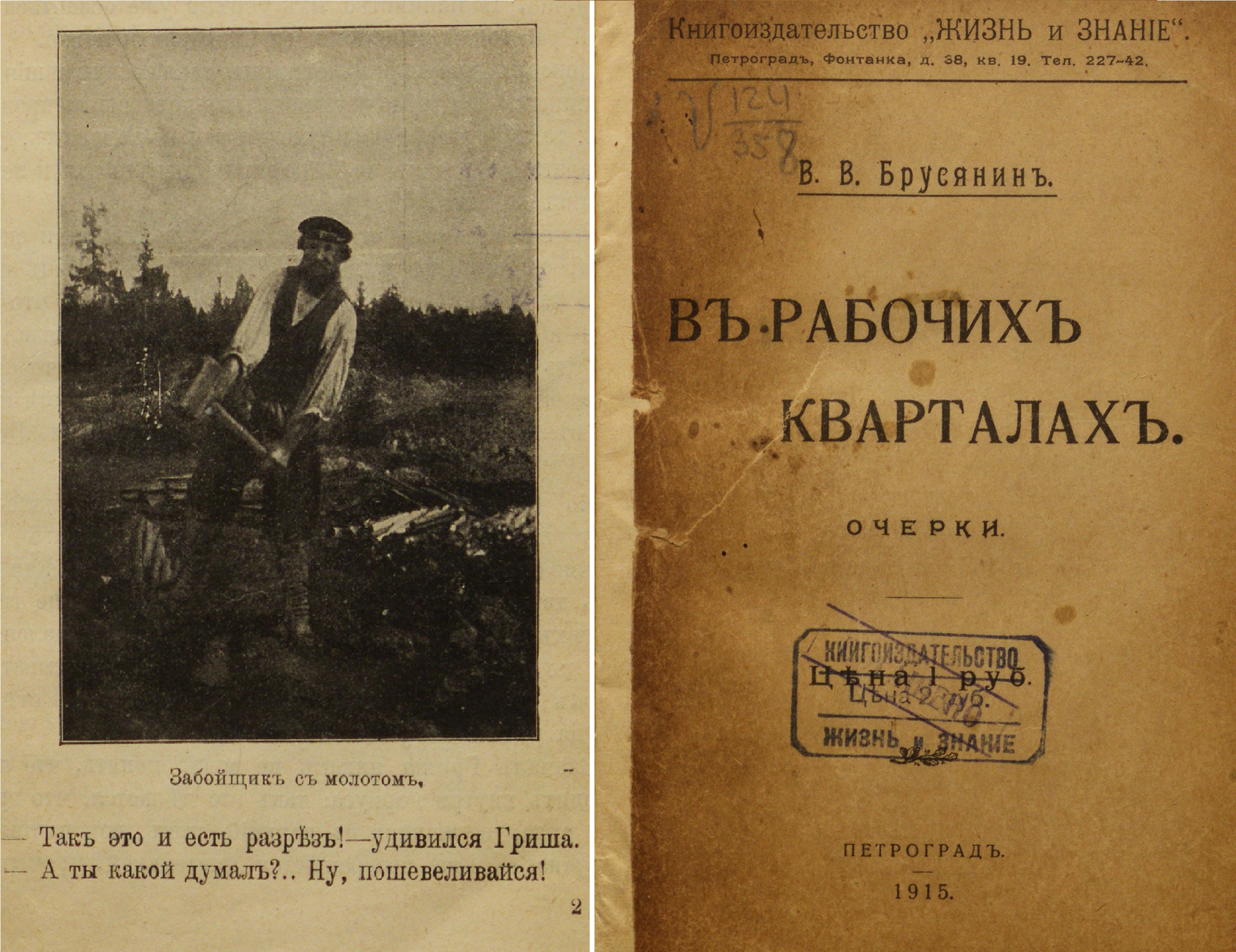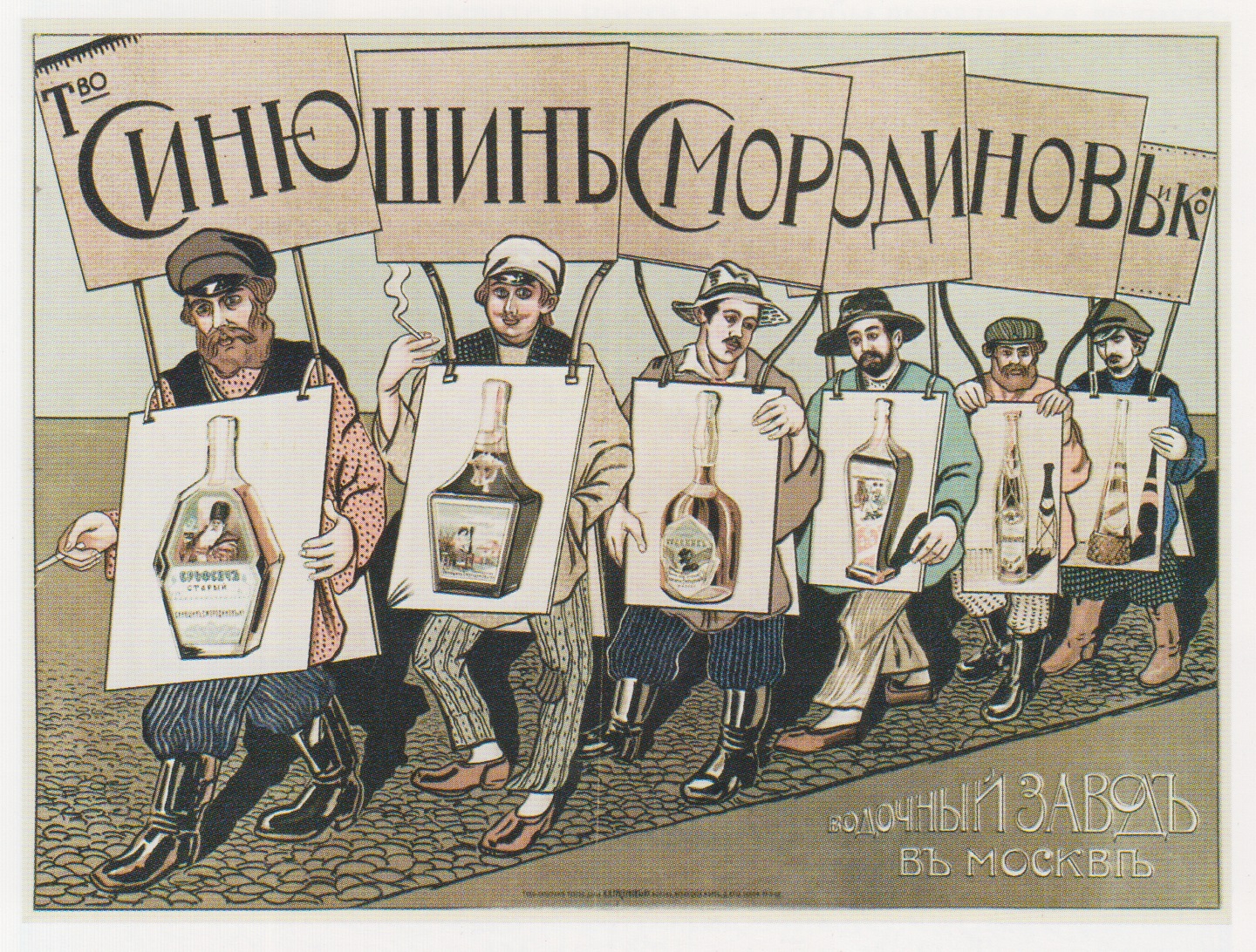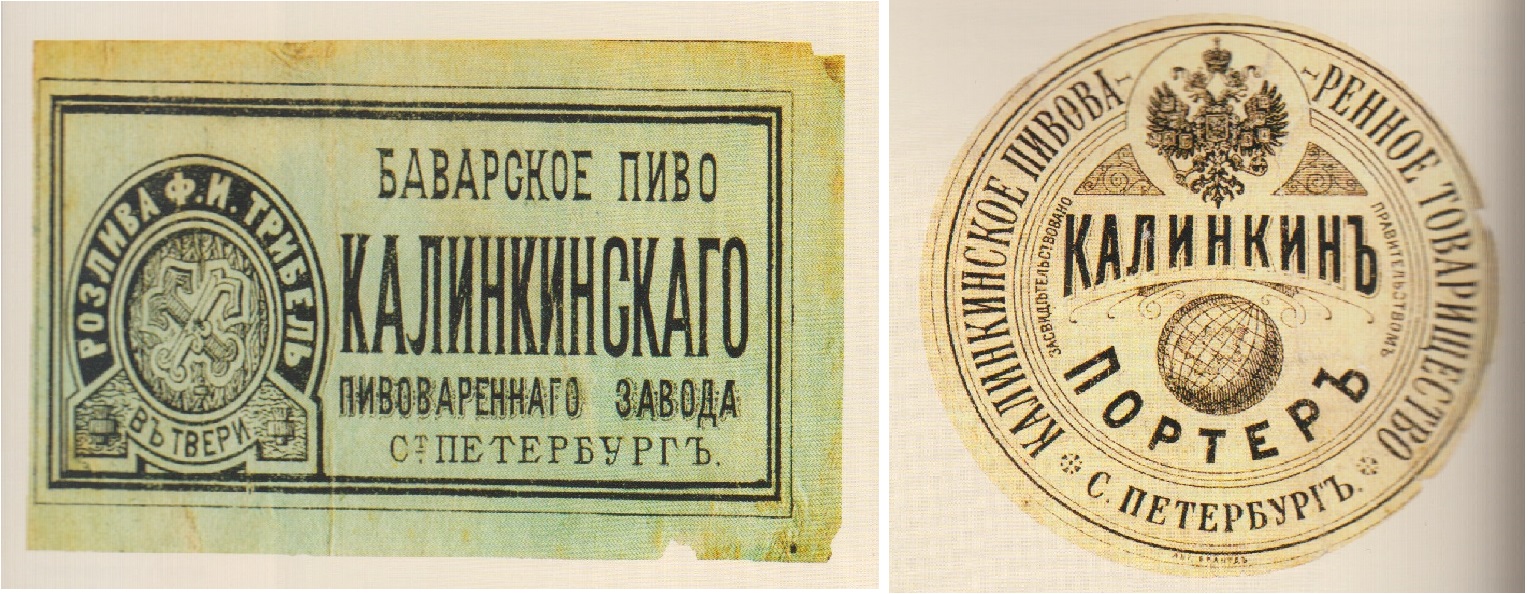Note 4. Labour Day

Yuliya Kozitskaya
Translated by Julian Graffy
The growth of the workers’ movement at the beginning of the Twentieth Century was also reflected in the cinema. But the early Russian and foreign films about the proletariat are strikingly different.
In the Russian films about workers the key plot elements remain the eternal themes of love and death, which were traditionally of considerably greater interest for viewers than questions of the proletariat’s struggle for its rights.
The Blue Flame
The action of the film The Blue Flame (Sinii ogon´, 1913), produced by the Vita Company, unfolds in a pyrotechnic factory, but the main plot is constructed around a love drama and the motif of vengeance.
Libretto
Two comrades work at the pyrotechnic factory and also spend their free time together. As they were walking in the park one day they made the acquaintance of a pretty young lady and proposed that she get a job in their factory, where a young lady was needed. The two friends both fell hotly in love with this girl, but Spiranskii was luckier than Demidov. Spiranskii made a date with his beloved in the park, which Demidov heard about, and tortured by jealousy he pursued the young lovers. When he had finally summoned up the courage Demidov told Meri of his love for her but she pushed him away, paying no attention to his entreaty. In a fit of anger, Demidov decided to avenge himself on Spiranskii. At that time the factory received a large order for fireworks and this responsible job was entrusted to Spiranskii, which also aroused angry envy in Demidov. Demidov sprinkled highly explosive material into Spiranskii’s work mortar with the aim of destroying him. A boy with whom Demidov was very strict and whom he constantly beat noticed what he was up to and swapped Spiranskii’s mortar, placing the lethal one for Demidov. Not anticipating the danger he was in, Demidov was already relishing his vengeance, but at that very moment his mortar exploded and he perished through his own malice, confessing his grave sin to his comrade. But Spiranskii survived and became renowned for his work and his famous blue flame, which is demonstrated under his supervision.
‘Novye lenty (New pictures)’, Sine-Fono, 1914, 8, p. 51

The Baptised Jewess and The Workers’ Quarter
The librettos of the films about workers The Baptised Jewess (Zhidovka-vykhrestka) and The Workers’ Quarter (Rabochaia slobodka) also end with the death of one of the main protagonists. But they are also connected by another motif – the drunkenness of the main heroes, which destroys their families. In The Baptised Jewess (1911) the heroine, Sara, is cursed by her father for becoming a Christian. Her father’s curse brings misfortune: Andrei, Sara’s husband, takes to drink, almost kills their son and throws his wife out, so that she ends her life by suicide. As we can see from the libretto the fact that main protagonist is a member of the working class plays no significant role in the development of the plot.
Libretto
On the outskirts of one of the small towns in the South-West of the country, among cherry orchards on the shore of a lake you will find the mill belonging to the old Jew Leiba. The old man’s only daughter, beautiful Sara, loves her neighbour, the young workman Andrei. Andrei has left his previous lover, the soldier’s wife Mar´ia for the pretty Jewess, and Mar´ia vows to avenge herself on her rival. The son of a wealthy local Rabbi pays court to Sara. Her father’s will is inflexible and the young couple decide to elope. Sara will become a Christian and they will marry in church. Mar´ia overhears their plans and late at night she runs up the stairs to warn Sara’s father but it is too late: Andrei and his beloved are already far away. Old Leiba learns about his daughter’s baptism and intercepts her on her way back from the church: the terrible words “May you be accursed for forgetting the faith of your fathers” ring out over the fugitive’s head.
A year passes. Andrei has got a job as a supervisor in a brick factory in the neighbouring small town and the young couple are enjoying their cloudless happiness, not suspecting that Sara’s elopement has caused her father to lose his mind. Meanwhile at the factory Andrei has a chance encounter with his former lover. Wishing to avenge herself for the past, Mar´ia once again seduces Andrei and the family’s happiness is destroyed. Andrei turns to drink and in a fit of drunken rage tries to kill his son and throws his Jewess wife out. Mad with grief, Sara runs to her native hearth and, when she finds that it has been destroyed, she hangs herself. Old and mad, his clothes in tatters, Leiba finds Sara and sings over the corpse of the unfortunate young woman, humming an old lullaby that he used to sing to his daughter.
‘Novye lenty (New pictures)’, Sine-Fono, 1912, 23, pp. 35-36

The Workers’ Quarter
In the film The Workers’ Quarter (Rabochaia slobodka, 1912), which is a screen version of a play of the same name by Evtikhii Karpov, the “workers’” theme, as is clear to see, is underlined as early as in the film’s title, but here too the plot is constructed around a typical love drama: this time the worker hero is jealous of his wife’s relationship with the supervisor. As in The Baptised Jewess, the main hero, while in a state of intoxication, almost commits a crime. Thus it is in fact drunkenness that becomes one of the main themes of the films about the lives of factory workers.
Libretto
Arisha’s husband, Fedor and her father both work at the iron foundry. Fedor is desperately in love with his wife Arisha and terribly jealous of his supervisor at the foundry, Surguchev. Surguchev had noticed pretty Arisha some time ago and now she cannot get away from his compliments. But Arisha is inflexible… Then Surguchev persuades the workman Vavila, a notorious drunk, to get Fedor drunk and on pay day Vavila invites Fedor to the pub. Fedor takes to drink – he begins to drink every day, at home there are squabbles with his wife and Surguchev cunningly makes use of this. He visits Arisha and tries to persuade her to run away with him from her drunken husband… Arisha still hesitates… she is afraid of causing Fedor grief… One day Surguchev brings her a kerchief as a present and Arisha leaves it on the table. The drunken Fedor sees the present and forces his wife to admit that it was brought to her by Surguchev. Arisha’s confession arouses a fit of madness in Fedor, he throws himself upon his wife and begins to suffocate her, but he soon stops and runs from the house in horror at his action. Her husband’s beatings have put an end to Arisha’s patience: she decides to leave him and runs off with Surguchev.
A few months pass. Abandoned by his wife, Fedor becomes an alcoholic and loses his job at the foundry. His clothes in tatters, he reels from pub to pub, begging the drinkers to give him the price of a glass of vodka. Nor is Arisha’s life milk and honey: Surguchev soon loses interest in her and begins to pay court to other women. One frosty day in winter Fedor comes to stand at the windows of Arisha, whom he still loves. Shocked by his beggarly state, Arisha calls him into the house and, while Surguchev is out, she warms him up and gives him food. Unable to restrain herself, Arisha tearfully tells him about her sad life. This is their last meeting… Fedor leaves Arisha’s house and, exhausted, he falls to the ground beneath her windows. In the morning the watchman finds the poor man’s frozen corpse.
‘Novye lenty (New pictures)’, Sine-Fono, 1912, 12, pp. 25-26
Meanwhile, abroad
In the foreign film The Proletarian Genius (Proletarii genii, 1913) the adventure plot is pursued more strongly, but, as in the Russian films, the fact that the main protagonist is a member of the working class is not important for the development of the plot.
Libretto
The young violinist Christian lives in a room next to that of his beloved, Ellen and her permanently drunken father. Returning home one day Ellen’s father beats her so severely that he is arrested and sent to prison, while the young couple plan to leave for the big town so as to try to find happiness there. Christian wants to enter the conservatoire there but for the time being he is employed as a simple worker in the port so as to earn enough for him and his girlfriend to live on. But then luck smiles on the young people: a professor at the conservatoire takes an interest in the young musician and takes him and his girlfriend into his house as if they were his own children. Meanwhile Ellen’s father is released from prison, and meeting his daughter in the street he forces her to follow him. He takes her to a cellar where he and his comrades, the dregs of society like him, have taken refuge. There they come up with the idea of robbing the rich professor and they force Ellen to take them to his house. But the professor’s servant hears the noise and stops them and they run off without managing to steal anything, taking Ellen with them. But Ellen has managed to take along some friends, two carrier pigeons which come to her aid. With the help of a pigeon she informs her friend of what has happened to her and where she is. Christian tells the police and they immediately set off to help her. Ellen’s father and his comrades, not wanting to give themselves up to the police, set a trap for them, and when the police burst in they fall into a pit, which the men cover over them. The criminals celebrate their victory, get completely intoxicated and fall asleep, while Ellen helps Christian and the police to get out of the pit. In an unequal struggle the police kill Ellen’s father and arrest the others. Ellen has a joyful meeting with her friend and their benefactors. Meanwhile Chistian is recognised as a talented musician and receives an invitation to take part in a concert which will be attended by the King. From then on the reputation of the proletarian genius is established and he and his girlfriend live happily ever after.
‘Novye lenty (New pictures)’, Sine-Fono, 1913, 1, p. 65
Proletarian matters. The Worker of the Future
The only libretto that we have been able to find which concerns itself with the rights of the proletariat is the text for a foreign pamphlet film The Worker of the Future (Budushchii rabochii, 1909). To all appearances the film’s creators did not consider that the acquisition of rights and freedoms by the workers would contribute to the growth of justice: in this case they would simply cease to be workers.
Libretto
What we have here is a witty and subtly worked out pamphlet, a portrait of the worker of the future at a time when workers have organised themselves and hold the employers in their hands. A worker is needed to mend a brick wall which has fallen down. The owner has to turn to the workers’ club. Here they treat him without ceremony, forcing him to wait a long time and taking a considerable deposit. Finally one of the workers gets into the car with him and they drive to the place where the work is to be done. Here they make things as comfortable as possible for our skilled craftsman. They bring him a fine breakfast and after he has placed a few bricks in the wall he decides that that is quite sufficient for the first shift. They invite him into the owner’s flat where they give him a bed and so on. In the end the workman forces his employers to take on the work themselves under his general supervision.
‘Novye lenty (New pictures)’, Kinemo, 1909, No. 11, pp. 11-12
Have you spotted a typo?
Highlight it, click Ctrl+Enter and send us a message. Thank you for your help!
To be used only for spelling or punctuation mistakes.